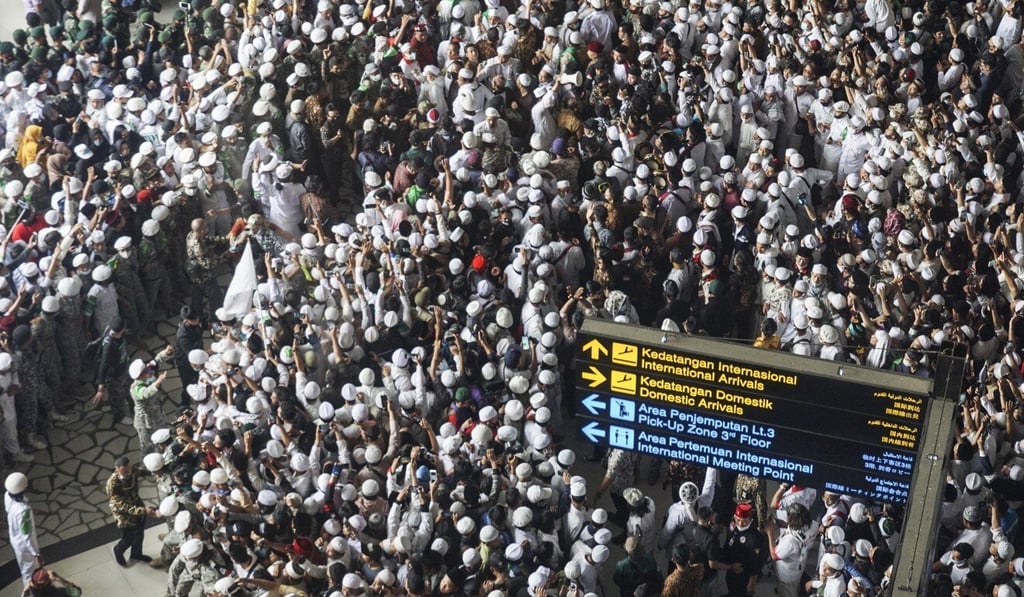Advertisement
Hardline Indonesian cleric returns from Saudi exile to call for ‘moral revolution’
- Islamic Defenders Front leader Habib Rizieq Shihab was greeted by thousands of followers upon his arrival, one of whom reportedly fainted and died
- Analysts warned of provocations from Rizieq and his group, including attacks on religious minorities
Reading Time:4 minutes
Why you can trust SCMP

Thousands of followers of a firebrand Indonesian cleric Habib Rizieq Shihab jammed Jakarta’s international airport on Tuesday to welcome him home from a three-year self-imposed exile in Saudi Arabia.
The mostly white-clad crowd surged forward when the leader of the hardline Islamic Defenders Front (FPI) appeared, chanting “God is Great”. One of his followers, named Sotong, fainted and died while waiting by the roadside to greet him, local media reported.
From the airport, Rizieq made his way to FPI’s headquarters, where he called on his followers to carry out a “moral revolution”.
Advertisement
“We will crush all oppression. Fight corruption. Agree?” Rizieq shouted.
“Agree!” his supporters shouted back.
Advertisement

Advertisement
Select Voice
Select Speed
1.00x